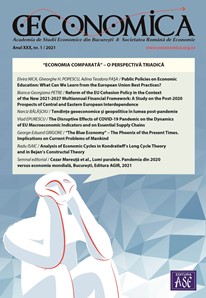
What Is the Real Cooperation Between China and the Countries of Southeastern Europe How may export to the Chinese market be increased?
We have been listening to more and more stories of the New Silk Road (the Belt and Road Initiatives), both in the countries of Eastern and South-Eastern Europe that are approached by this Chinese initiative, as well as in the countries of Western Europe and the United States, which view it with great suspicion.
The West greeted this initiative with exceptional skepticism, trying to figure out which are the real interests of China in the European backyard.
Indeed, in this part of Europe and in recent decades, a belief has prevailed that the only way to general modernization and the advancement of society and economy is in total connection with the developed countries of the West. Everything that came from the East, especially from China, was viewed with disregard, because a stereotype coalesced where it was thought that what originated from there was of low quality, and that the enormous economic success of that country was merely the result of a combination of foreign direct investment (FDI) and cheap labor.
Changing views
The mention of China conjures, in the minds of most people, an image of a poor Communist country with countless bicycles, where the West transferred their outdated factories with obsolete technologies in which workers work for a handful of dollars. But all of those who have recently travelled to China with such prejudices experienced a shock when facing the reality of the country, which has made gigantic steps in the process of modernization. Increasingly, it can also boast of global companies with competitive brands such as Lenovo, Huawei, Alibaba and others.
The West has now begun to think of China as a country that is imposing itself as a new world player and competitor to the United States for the position of dominant power, which may end up also offering an alternative in the functioning of the state, society, economy and the interactions within the global community which are different from the paradigm of the last few decades.
Poland has been especially progressive in this by radically changing its approach; it began to be the most active in developing economic cooperation with China, believing that the 16+1 Initiative is fully compatible with their previous Intermarium project.
This is particularly noticeable on the African continent, where more and more states are trying to reduce the pernicious influence of the World Bank and the IMF on their internal policies in exchange for much-needed funding, seeking new sources for capital in the Far East. In the past decade, many Western experts have described and looked askance at China's influence and ambitions on the African continent, a place where, even after the independence process, continues to choke on debt and misery, depending on Western loans, while failing to cope with problems like poverty and general underdevelopment.
The Chinese model of state development is seen in most African countries as very interesting and tempting, as well as more in line with their internal realities. The West did not regret that these dysfunctional states would secure funding from elsewhere, but they did mind that the Chinese may obtain influence over the sources of raw materials that the West had jealously guarded for centuries, considering Africa its own exclusive preserve.
Paradigm shift
There is a general misunderstanding of the role of China in the modern world, which takes the form of the extremes of either total underestimation or overestimating the role and ability of China in this region.
And just when everyone began to get used to the fact that China has become an indispensable factor in international economic relations, much depending on it, and which is in a dire need of resources for its development, a new surprise emerged. Chinese President Xi Jinping (习近平) announced that China was starting the realization of its largest foreign policy and economic project - The Silk Road Economic Belt and the 21st Century Maritime Silk Road (一帶 一路). This grand project should link more than 60 countries of Asia and Europe (in addition to several countries of Africa and Oceania), with a total projected value over a long period of between USD 4 trillion or USD 8 trillion. Of course, many saw this Chinese project as a counterpart to American Trans-Pacific Partnership and Transatlantic Trade and Investment Partnership projects. A special place in The Belt and Road Initiatives is occupied by the 16 + 1 Initiative, which is supposed to bring together the countries of Central, Eastern and South-Eastern Europe. The West greeted this initiative with exceptional skepticism, trying to figure out which are the real interests of China in the European backyard. After the lukewarm reception they gave the initiative in the beginning, these countries quickly realized that Europe does not have much money for investment projects in this region, and it might be wise to see what the Chinese offer, and then use that money for much needed investment projects.
The lack of educated technocrats who know China, the Chinese language, its civilization and economy, and who are able to make adequate and timely analyses of the current and future situation, i.e. to define a long-term general strategy of relations with China…
Poland has been especially progressive in this by radically changing its approach; it began to be the most active in developing economic cooperation with China, believing that the 16+1 Initiative is fully compatible with their previous Intermarium project, which would bring together the Catholic countries of Central and Eastern Europe aiming to bar Russian influence from spreading into Europe.
Are the imbalances permanent?
Of course, complaints are being lobbed at the expense of the Chinese that in all 16+1 projects Chinese firms and interests are being favoured and preferred, and that there is no room for an important growth of exports of these 16 countries to the Chinese market.
Is that the case? And why is it so hard to enter the Chinese market, which is what all the world's largest multinational companies crave? Indeed, what are the problems that all the countries of this initiative are facing in order to strengthen their exports and presence in the Chinese market? I will try to summarize some of my observations and conclusions concerning these issues.
Such a long-term and serious job can only be performed by real professionals and experts, and not political aparatchicks who, unfortunately, have been placed in leading positions in most of these countries, and who really do not have the ability to complete such an important task.
First of all, there is a general misunderstanding of the role of China in the modern world, which takes the form of the extremes of either total underestimation or overestimating the role and ability of China in this region. The reason for this is the lack of educated technocrats who know China, the Chinese language, its civilization and economy, and who are able to make adequate and timely analyses of the current and future situation, i.e. to define a long-term general strategy of relations with China.
This is very much necessary, because notions of time are not the same in our civilizations; they define their strategy and plans for a longer period of time, contrary to present-day Europeans who make plans that closely depend on elections and changing political and management teams. When defining these general strategies, they should draw out plans and priorities for all aspects of cooperation with China, which should be committed to and persistently updated. This also refers to the assessment of products and branches of economy that may have a long-term chance in the Chinese market, as well as everything that needs to be done to achieve the goal. Such a long-term and serious job can only be performed by real professionals and experts, and not political aparatchicks who, unfortunately, have been placed in leading positions in most of these countries, and who really do not have the ability to complete such an important task.
There is a political cover to this dysfunction, as any strong commitment to the development of the relationship of this part Europe with China is perceived as a kind of "heresy" in Western Europe.
The lack of appropriate institutions that would deal with the unification of planning of all the projects with China, the coordination of all state and business entities on both sides who need to cooperate in order to achieve the set goals, as well as controlling the results achieved and elimination of unproductive factors and projects during cooperation, is also a major problem. Indeed, there are ministries, embassies, state agencies and chambers of commerce that are supposed to deal with this business. However, the sad reality is that all of these institutions are staffed with people who are not at capable of the required task, who are narrow-minded, often uncooperative and fail to "see the forest for the trees."
A great responsibility certainly lies with the companies themselves, who misunderstand the modern Chinese economy, its specificities and its potentials, and the modes of entering the Chinese market.
There is a political cover to this dysfunction, as any strong commitment to the development of the relationship of this part Europe with China is perceived as a kind of "heresy" in Western Europe, although Western Europe seeks, in every possible way, to improve its own economic relations with China, defending jealously the economic interests of their own companies to whom Presence on the Chinese market is Conditio Sine Qua Non.
Let me remind you that in most of the embassies of Western countries in Beijing, there are teams dedicated to economic diplomacy whose sole task is supporting their own companies in China, who are constantly looking for even the smallest business opportunity and drawing their companies to it in order to increase their presence in this huge market.
Sharing the blame
A great responsibility certainly lies with the companies themselves, who misunderstand the modern Chinese economy, its specificities and its potentials, and the modes of entering the Chinese market (the classic excuse is that we do not have enough goods for China).
In these countries, there are a large number of companies that have a turnover between USD 1-10 million, which have high-quality and competitive products, and who would certainly be able to find their place in the Chinese market in the conditions of adequate support of the Member States of the Initiative.
The big problem is the absence of an adequate number of large and high-quality companies from this part of Europe that could work on par with Chinese companies and take full advantage of the initiatives of their respective countries. It would therefore be interesting to initiate and promote the SME Cooperation Platform with Chinese partners within the 16+1 Initiative, which has not functioned so far. In these countries, there are a large number of companies that have a turnover between USD 1-10 million, which have high-quality and competitive products, and who would certainly be able to find their place in the Chinese market in the conditions of adequate support of the Member States of the Initiative.
These SMEs would especially be interested in affordable loans that they could draw from Chinese banks to support their presence in their market. There are, of course, real problems when exporting to China, which refer to the existence of import barriers and complicated procedures that must be fulfilled as a condition for exporting products to this country. There is also a problem of non-existence of clusters that would be able to accommodate a larger number of small producers, whose products could potentially be viable for the Chinese market, as well as the problem of the really high prices of certain products for which firms in this region think they can be successful, although they may not bear the test of the Chinese market.
Another measure is supporting all companies interested in taking part in numerous meetings, congresses, fairs and exhibitions organized under the 16+1 Initiative.
Given that all major global players are already present in the Chinese market and spend huge sums of money in order to increase their market share, relatively small companies of South-East Europe need all possible support from the state. This support would be reflected, for instance, in the effective removal of all administrative barriers that could present obstacles by cooperating with the relevant Chinese institutions, which may often be sluggish. Another measure is supporting all companies interested in taking part in numerous meetings, congresses, fairs and exhibitions organized under the 16+1 Initiative. At fairs or B2B meetings, potential associates can be found. States could also approve a specific budget that would be intended to promote exports to the Chinese market both through the promotion of the country itself and its tourist opportunities, indirectly promoting awareness about the countries in the region in the eyes of the ordinary Chinese - but also through the establishment of appropriate state agencies to deal with exports to the Chinese market and lower the various barriers which small companies find hard to surmount.
Conclusion
The key to all these items, let me iterate once again, is the selection of dedicated people who are quality professional and who know China, its language, culture, civilization and mentality, and who are ready to dedicate themselves to decades of fundamental work in order to achieve short-term, mid-term and long-term goals that are set in advance. The Chinese bond to the people they cooperate with, and it takes years to gain and build trust and guangsji (关系, guanxi), a network of contacts and influence. In China, the fate of every individual, institution, company or project depends on the strength of the guanxi that the actors may have with the influential Chinese, and this is something that is built for years, and may be lost only once.
The Chinese bond to the people they cooperate with, and it takes years to gain and build trust and guangsji (关系, guanxi), a network of contacts and influence. In China, the fate of every individual, institution, company or project depends on the strength of the guanxi that the actors may have with the influential Chinese, and this is something that is built for years, and may be lost only once.
In conclusion, the countries of Southeast Europe have a chance to develop their presence in China, only this must be taken very seriously, with long-term plans by the best and most dignified representatives of these countries, taking into account all the specifics of this country. Working with China is very difficult, but not impossible!








